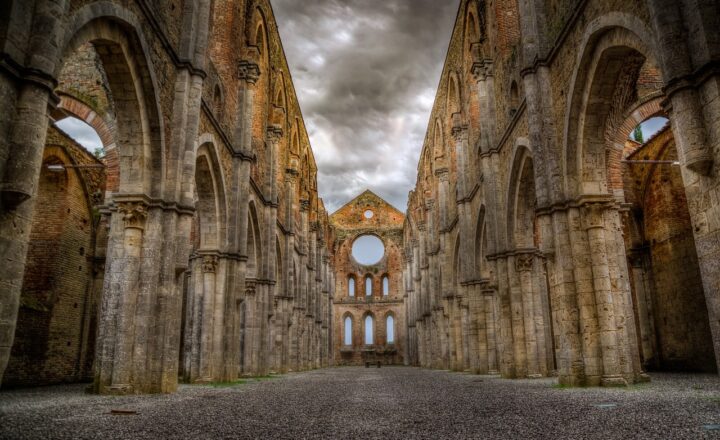
The influence of historical empires on contemporary political systems is profound and intricate, shaping the very foundations of governance that we see today. From ancient Rome to the Ottoman Empire, the legacies of these powerful entities continue to echo through our modern political institutions, practices, and ideologies. This article dives deep into the ways historical empires have molded the political landscape of today, the lessons we’ve learned from their successes and failures, and how their stories serve as a guide in navigating current global politics.
1. The Role of Empires in Shaping Governance Models
Empires have historically been at the forefront of political innovation. They played a pivotal role in developing governance models that influenced nation-states and political organizations worldwide. Empire-building necessitated complex systems of administration, governance, and law. Roman law, for example, served as a foundational element for legal systems across Europe and beyond.
Empires introduced concepts such as:
- Bureaucracy: The establishment of administrative systems to manage vast territories and diverse populations led to advancements in bureaucratic governance, echoed in many modern governments.
- Centralization of Power: Empires often operated under centralized authorities, influencing modern nation-states toward federal and central governance systems.
- Legal Codification: Early empires created the first legal codes, setting the stage for modern legal frameworks that govern countries today.
The result is a political landscape where many modern states have adopted governance practices derived from historical empires.
2. The Legacy of Roman Empire and Democratic Principles
The Roman Empire’s impact on modern democratic principles cannot be overstated. The Romans were pioneers in establishing concepts of citizenship, public law, and the senate system. Their political innovations created the groundwork for various elements of modern democracy:
- Representative Government: The Roman Senate served as a model for representative governance, influencing the development of legislative bodies in contemporary democracies.
- Legal Rights of Citizens: Concepts such as the presumption of innocence and the right to a fair trial stem from Roman legal practices, which continue to be central tenets of modern law.
- Political Philosophy: The writings of Roman philosophers like Cicero laid the foundation for political thought regarding justice, rights, and the natural order, informing Enlightenment thinkers in Europe and revolutionary ideas in the Americas.
As nations evolved their political identities, the Romans’ legacy endured, encouraging the spread of democratic practices around the world.
3. The Influence of the Byzantine Empire on Governance and Religion
The Byzantine Empire, a direct continuation of the Eastern Roman Empire, makes significant contributions to modern governance and religious structures:
- Separation of Church and State: The Byzantines grappled with the balance between ecclesiastical and imperial powers, influencing the discourse on the relationship between religion and governance in contemporary societies.
- Codification of Laws: The Codex Justinianus served as a monumental legal framework, influencing modern civil law systems in Europe and beyond.
- Diplomatic Strategies: Byzantine diplomacy shaped methods of international relations and negotiations, forming a basis for today’s foreign policy practices.
By examining the Byzantine Empire’s complex relationship between governance and religion, modern political systems can learn the importance of maintaining a balance that allows for diverse voices and powers in society.
4. The Ottoman Empire’s Contributions to Multicultural Governance
The Ottoman Empire distinguished itself through its innovative governance of a diverse array of ethnic and religious groups. Its ability to maintain harmony among various cultures can inform contemporary approaches to multicultural governance today:
- Millet System: The Ottomans recognized and respected the autonomous rights of various communities, allowing them to maintain their religious practices and governance, offering a framework for contemporary pluralistic governance.
- Cultural Exchange: The empire was a melting pot of cultures, promoting dialogue and integration that modern states can emulate to navigate today’s globalized world.
- Administrative Innovation: The organizational structure of the Ottoman government included localized administrative systems, which serves as a model for decentralization in modern democracies to enhance local governance.
In studying the Ottoman Empire’s management of diversity, modern political systems can learn the value of inclusivity and the importance of recognizing multiple identities within the state.
5. Lessons from Empires: Successes and Failures
As we reflect on the legacies of historical empires, it’s essential to pull lessons from their successes and failures. These lessons can guide political leaders and policymakers today:
- The Danger of Overreach: Many empires fell victim to overextension, neglecting local governance and stoking dissent among subjugated populations. Modern states must prioritize local interests to ensure stability and governance legitimacy.
- The Importance of Adaptability: Successful empires adapted to changing circumstances, learning from both external pressures and internal dissent. Nations today must remain agile in their policies to effectively respond to global challenges like climate change and economic inequality.
- Civic Engagement and Participation: The rise and fall of empires often hinged on levels of civic participation. Modern democracies must encourage public engagement to ensure responsive governance and societal cohesion.
By understanding the intricate interplay of these factors, modern political systems can make informed decisions that avoid the pitfalls of past empires while embracing effective governance strategies.
Conclusion
The impact of historical empires on modern political systems is undeniable and multifactorial. From governance models and legal frameworks to multiculturalism and civic engagement, the lessons drawn from these powerful entities offer critical insights into how we can navigate the complexities of 21st-century governance. Understanding the successes and failures of past empires allows current leaders to build systems that are not only effective but also equitable and inclusive. The histories of empires linger as a testament to the potential for governance to evolve and adapt through the ages, guiding contemporary societies towards sustainable and successful political futures.







